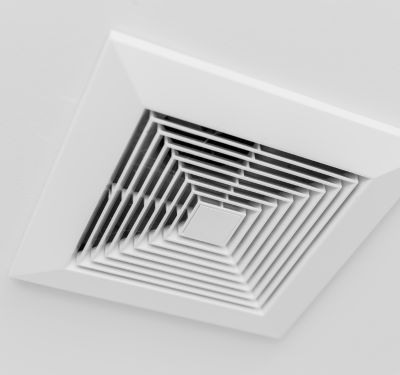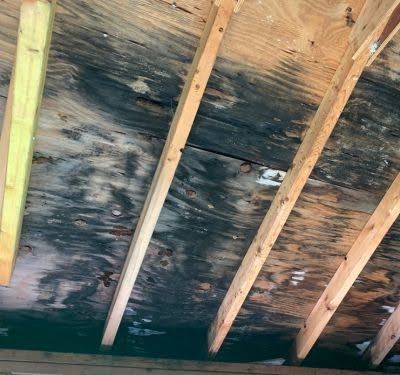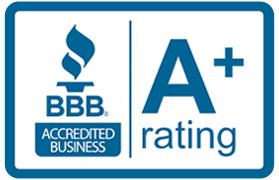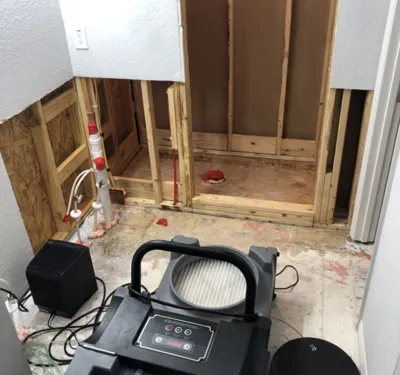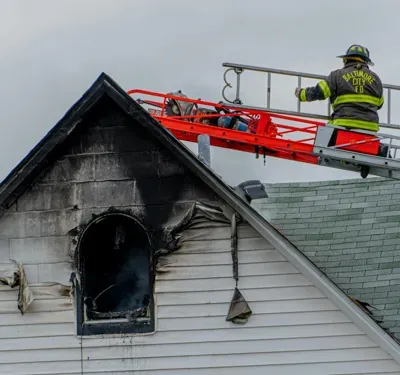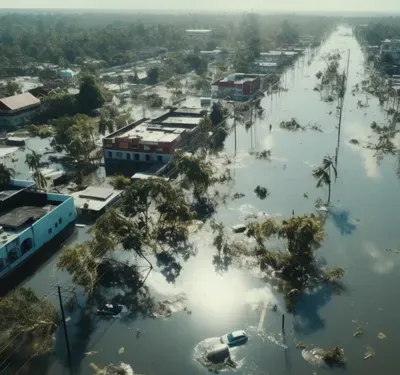The Top Causes Of Water Damage In Homes And How To Prevent Them
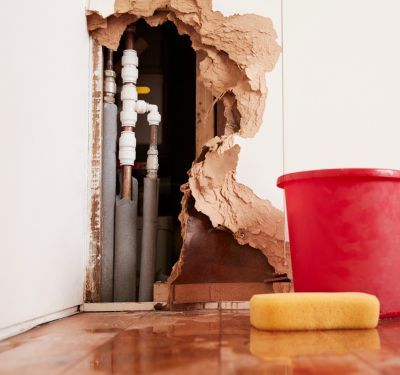
Water Damage can be every homeowner’s worst nightmare, causing inconvenient, costly, and unsafe situations. Whether it’s a slow and stealthy leak or a sudden flood, the consequences can be devastating, leading to structural damage, mold growth, and costly repairs.
In this blog post, we will delve into some of the top causes of water damage in homes and provide you with valuable insights on how to shield your property from this ever-present threat. From the plumbing system beneath your floors to the roof overhead, and even external factors like severe weather events, understanding the origins of water damage is the first step in preventing it.
Common Causes Of Water Damage
Water damage can occur at any time for a wide variety of reasons. It’s essential for homeowners and property managers to be aware of these common causes of water damage and take proactive steps to prevent them or address them promptly to minimize damage and repair costs. Common causes of water damage include:
- Leaking Pipes: Corroded, damaged, or aging plumbing pipes can develop leaks over time, leading to water damage in walls, ceilings, and floors.
- Burst Pipes: Extremely cold weather can cause water inside pipes to freeze and expand, leading to pipe bursts and significant water damage when the ice thaws.
- Dripping Faucets: Persistent dripping from faucets may seem minor, but it can waste water and contribute to damage over time, particularly in the areas surrounding the fixture.
- Appliance Failures: Appliances like washing machines, dishwashers, and water heaters can develop leaks or fail, releasing a significant amount of water into the home.
- Roof Leaks: Damaged or deteriorated roofing materials, including shingles, flashing, and seals, can allow rainwater to penetrate the roof and damage the interior of the building.
- Clogged Gutters and Downspouts: When gutters and downspouts are clogged with leaves, debris, or ice, they can overflow, causing water to pool around the foundation and potentially infiltrate the basement.
- Foundation Cracks: Cracks or gaps in the foundation walls or floor can allow water to seep into basements and crawl spaces, leading to flooding and damage.
- Sewer Backups: Sewer line blockages or backups can cause wastewater to flow back into the home, resulting in unsanitary and damaging conditions.
- Storms and Flooding: Heavy rainfall, hurricanes, or localized flooding can inundate homes with water, causing significant damage to both the structure and contents.
- HVAC System Issues: Air conditioning units and HVAC systems can develop condensation leaks or malfunction, leading to water damage in ceilings or walls.
- Faulty Window and Door Seals: Poorly sealed windows and doors can allow water to infiltrate during rainstorms, leading to interior water damage.
- Natural Disasters: Events such as earthquakes, hurricanes, and tornadoes can cause extensive water damage by damaging roofs, breaking windows, or flooding homes.
- Lack of Maintenance: Neglecting routine maintenance, such as roof inspections or plumbing system checks, can allow minor issues to escalate into significant water damage problems.
Although some of these scenarios can be out of your control, regular maintenance and inspections and maintenance can play a crucial role in preventing many common water damage situations.
The Importance Of Professional Water Damage Restoration
When your home or property experiences water damage, the importance of professional water damage restoration cannot be overstated. One of the primary reasons is the urgency of the situation. The longer water sits and seeps into building materials, the greater the damage it can cause. Mold begins to grow in as little as 24-48 hours and can cause extensive damage and health risks. When you’re faced with water damage, hiring a professional water damage restoration is required to ensure your property is thoroughly restored to a safe environment.
Professionals have the knowledge, experience, and equipment to quickly assess the extent of the damage, extract standing water, and begin the drying process. This prompt action not only prevents further structural damage but also mitigates the risk of mold growth, which can be a serious health hazard.
Professional water damage restoration also ensures a thorough and comprehensive approach to restoration. This involves not only removing visible water but also addressing hidden moisture in walls, ceilings, and flooring. Professionals use specialized equipment like moisture meters and thermal imaging cameras to locate and address these hidden pockets of moisture.
Moreover, they have the expertise to handle different types of water damage, whether it’s clean water from a burst pipe, greywater from appliances, or contaminated blackwater from sewage backups. By hiring professionals, you can have confidence that your property will be restored to a safe and sanitary condition, following industry standards and guidelines.
Water Damage Prevention Strategies For Homeowners
As a homeowner, taking proactive steps to prevent water damage can save you from the headaches and expenses associated with repairs. Preventing water damage is not only about safeguarding your property but also about saving you from potential health hazards.
Implementing effective water damage prevention strategies is key to keeping your home or building dry and secure. Firstly, regular maintenance is paramount. Routinely inspect and maintain your plumbing system, checking for leaks and addressing them promptly. Address any issues promptly, and consider insulating pipes in colder climates to prevent freezing and bursting during the winter months.
Replace worn-out pipes, hoses, and connectors before they break to prevent unexpected failures. Knowing the location of your main water shut-off valve is crucial. In case of a sudden leak or pipe burst, being able to quickly shut off the water supply can significantly reduce the extent of water damage.
Furthermore, consider waterproofing vulnerable areas like basements and crawl spaces. This includes sealing cracks in foundation walls and installing sump pumps with backup systems to manage excess groundwater. By following these homeowner tips, you can be better prepared to prevent water damage and protect your home from potential disasters.
Expert Water Damage Restoration Near You
In the battle against water damage, knowledge, proactive measures, and professional services are your greatest allies. Understanding the common causes of water damage, as well as implementing prevention strategies and enlisting professional water damage restoration services when needed, can make all the difference in safeguarding your property.
If you’re dealing with water damage in Tampa, Tampa Emergency Restoration Pros is your trusted partner for the restoration of your property. At Tampa Emergency Restoration Pros, we know that water leaking or flooding your home can cause damage very quickly. We make sure we are available 24/7 to help you restore your home when you’re facing a water emergency!
Frequently Asked Questions About Water Damage
How long does the water damage restoration process take?
The duration of water damage restoration varies depending on the extent of the damage. Minor incidents may take a few days, while more severe cases, especially those involving extensive structural damage or mold, can take several weeks to complete. Your professional water damage restoration expert will be able to give you a timeline after assessing your property.
Can I handle water damage restoration on my own?
Attempting DIY water damage restoration is risky due to the potential for hidden damage and mold growth. Professionals possess the expertise and specialized equipment needed to accurately assess, extract, and dry affected areas while adhering to safety standards. DIY attempts may result in incomplete restoration, potentially leading to costlier repairs and safety hazards down the line. Always call a reliable, certified, and experienced company like Tampa Emergency Restoration Pros to restore your property after water damage.
How much does water damage restoration cost?
Water removal costs vary depending on the severity of the damage, the size of the affected area, and the materials needed to complete the restoration process. In some cases, your homeowners insurance policy may cover it but you’ll need to check your policy to be sure.
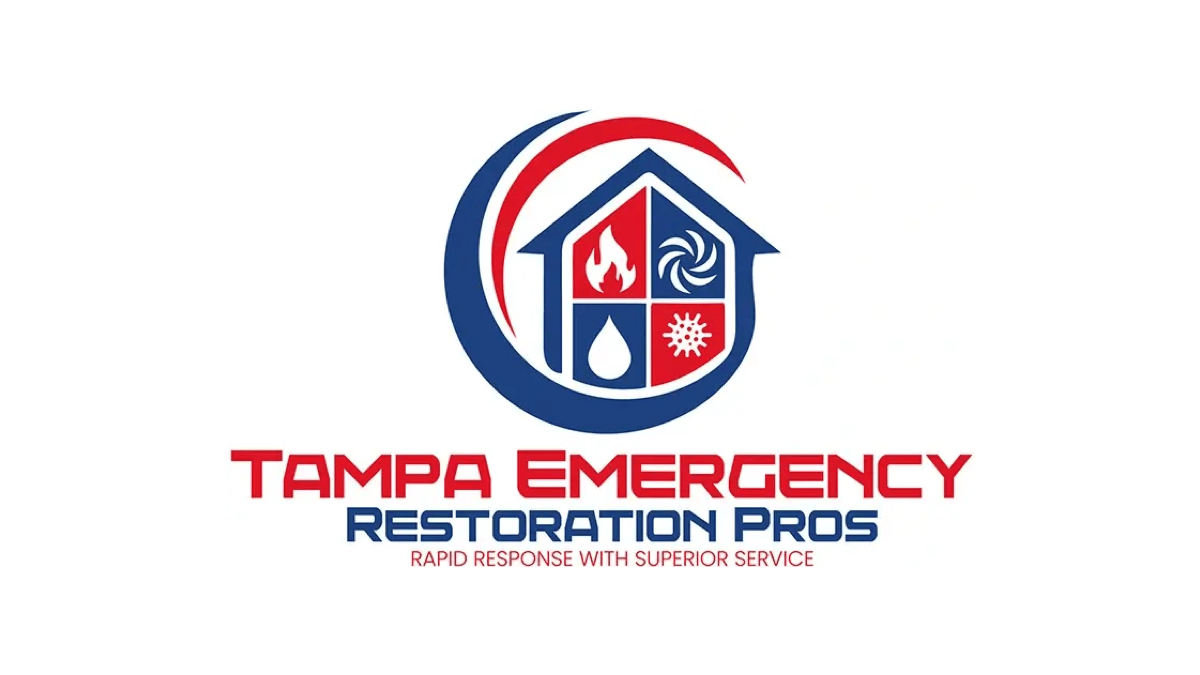
Other Blogs You May Be Interested In
Categories
